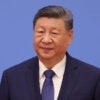This morning we reported on a recently-leaked document from the G20 Climate Finance Experts Group detailing that while Congress has promised to give Waxman-Markey’s energy tax revenues to Americans, Obama administration negotiators are promising to give that very same money to the governments of China, India and a host of other countries.
But that is just the beginning of cap and trade’s duplicity exposed by the documents. Page 10 of the document shows that those working to give our income away know they can’t be straight forward:
“A second question is how to address funding sources that might not be included in a contributor’s up front commitment. In particular, carbon markets are likely to provide a large fraction of financing for some contributors yet may be difficult to pledge.”
Translation: “If taxpayers [contributors] know that cap and trade commits America to sending hundreds of billions of dollars per year to foreign governments for decades to come, they might not like it so much.”
Who decides how much the rich countries need to transfer to the rest of the world? This group of finance experts offers two options with one being strongly preferred. The trick, here, is that “contributors” means “decision-makers” more than it actually means “contributors.”
Option 1: “Only developed countries contribute. While this has been the dominant model in the past (although some developing countries have contributed to the GEF), among other things, it ignores the dynamic nature of development and the common feature of the climate change challenge.”
Option 2: “All countries except the least developed countries (LDCs) contribute, but developing countries remain net recipients. By engaging all but the least developed countries, this creates global ownership in the process and further incentives for mitigation.”
Question: If you put a dollar in the homeless person’s cup, the homeless person puts in a nickel but keeps it all, are you both contributors? If you said “yes,” you are well on your way to being a climate finance expert.
Next question: Should you and the homeless person vote on how much you put in the cup? Say “yes” to create “global ownership.” See how easy it is to be a climate finance expert?
In other words, there will be “global ownership in the process” that determines how much money gets taken from energy-consumers in the U.S. and given to third-world bureaucracies.
In stunning ignorance of the cost to those who pay, this group sees a bigger problem with the third-world’s ability to spend the money than with our ability to pay:
“The rate at which public funding can be scaled up as a practical matter is limited by the absorptive capacity of the recipient country, the efficacy of delivery channels, and potential constraints in contributing countries.”
The constraints on spending are definitely there, while the constraints on taxing are only “potential” constraints. That is, so long as they can spend it, we can pay it!
This leaked document is a litany of proposals for stripping financial sovereignty from the U.S. and other well-functioning economies for transferal to international organizations where the inept and kleptocratic get access to the wealth they prevent their own citizens from producing.
Supporters of cap and trade, and carbon taxes have some more explaining to do.































28 Replies to “Cap and Trade’s Bait and Switch”